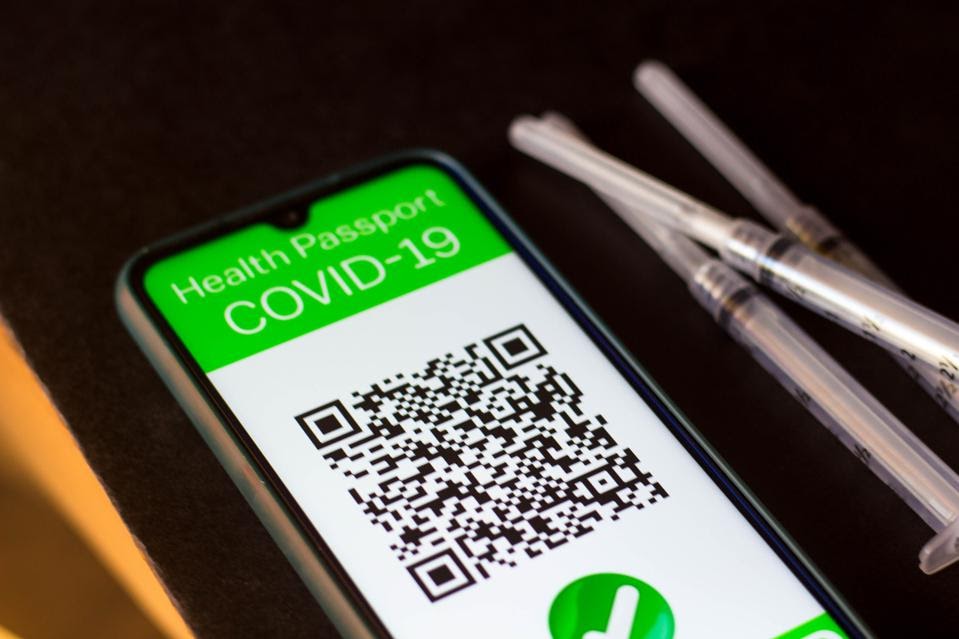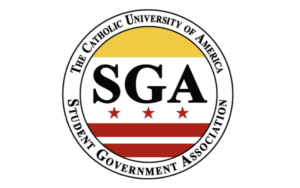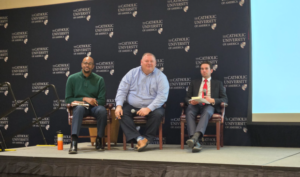Biden Administration Makes Statement on Vaccine Passports

Image courtesy of Forbes
Eduardo Castillon
“The government is not now, nor will we be supporting a system that requires Americans to carry a credential. There will be no federal vaccinations database and no federal mandate requiring everyone to obtain a single vaccination credential,” said Whitehouse Secretary Jen Psaki in a statement last week.
This does not mean we will not see something in the future resembling a vaccine credential, however, as there is an interest in the private and nonprofit sector to make use of such a system. In fact, The Washington Post reported that the Federal Health IT Coordinating Council met to discuss plans for vaccine credentials on March 2. Also, there are a number of states that are moving forward with vaccine passport programs for themselves, most recently in Hawaii.
The White House statement comes after a long discussion on the potential pandemic measure that has already been utilized in a number of countries. The European Union for instance, is planning to implement such a program before the summer in order to allow for travel between its 27 countries. The BBC reported, “Key to the digital certificate is a QR code – a machine-readable graphic code made up of black and white squares – that contains personal data and the EU’s Commission says it will be safe and secure.”
Republicans decried the proposed idea in the U.S. as government overreach breaching the privacy of the American people. Utah Senator Mike Lee has stated this same concern while admitting his approval of a vaccine passport system by private corporations. Governor Greg Abbott recently banned vaccine credentials in Texas, and Governor Ron Desantis of Florida went further by also banning their use by private businesses.
Democratic Strategist Jon Reinish believed that the Republcian reaction to vaccine passports was fear mongering and an attempt to paint the Biden administration in a bad light.
“That’s hard to do when the president is popular and people want to reopen the country,” Reinish said. “So if there is a tool that can enable people to do that, it’s going to be received well by most Americans.”
New York has been the first state to roll out a vaccine credential system with their Excelsior Pass. Some airlines, such as Aruba or JetBlue, have also begun using CommonPass, a privately developed and funded vaccine credential program. Israel, which currently has the highest number of vaccinations in the world, has also made use of vaccine passports.
With many people eager to reopen the economy, vaccine passports seem like the key to returning to a pre-pandemic life, but the ethical concerns about such a system cannot be underestimated. Already, there have been worries about the enforcement of passports, respect for the privacy of citizens, and the role of such credentials in the future.
For starters, some fear the new form of identification could prove to be discriminatory. While some simply do not have access to vaccines, others may refuse vaccination due to political, medical, and even religious reasons. A year ago, before vaccines had even been fully developed, Françoise Baylis and Natalie Kofler wrote on this issue for CBC, saying, “For members of certain racialized groups, there would be an increased risk of police carding, something that is already a serious problem for Canadian communities of colour and First Nations peoples.”
You may already be aware of the Chinese government’s use of facial recognition in everyday life and in their COVID-19 response. The technology has been used in western countries as well. It’s been used by police in the U.K. and the U.S. during the Black Lives Matter protests. Not only has facial recognition technology already overcome the problem of masks, but after testing the efficacy of facial recognition, The Department of Homeland Security stated, “Based on these results, organizations that need to perform photo ID checks could potentially allow individuals to keep their masks on, thereby reducing the risk of COVID-19 infection.” Any vaccine passport program in the U.S. will have to be mindful of citizen’s privacy and the ethical repercussions of such policy.
Some may look to the use of vaccine credentials as a way to incentivize vaccinations for people who have been hesitant so far. This kind of incentivization can be seen as threatening for some and cause further unrest in the country. A recent petition signed by thousands of people, including CUA faculty, was afraid of such measures threatening their right to choose to be vaccinated.
Furthermore, the necessity of such an incentive is questionable, as vaccination is popular amongst Americans. About 67% of Americans have and will receive the vaccine according to a Kaiser Family Foundation poll, with the “waiting to see” group shrinking at 17%. The Americans who are more likely to reject the vaccine also tend to live in more rural areas, where it is already easier to socially distance.
Just because the federal government has made no plans to create a vaccine credential system of their own does not mean that Americans will not have to worry about vaccine passports. Different credential programs will be used depending on where someone lives and is traveling. Now it will be up to state governments and private corporations to develop each of these systems with the many consequences in mind.








